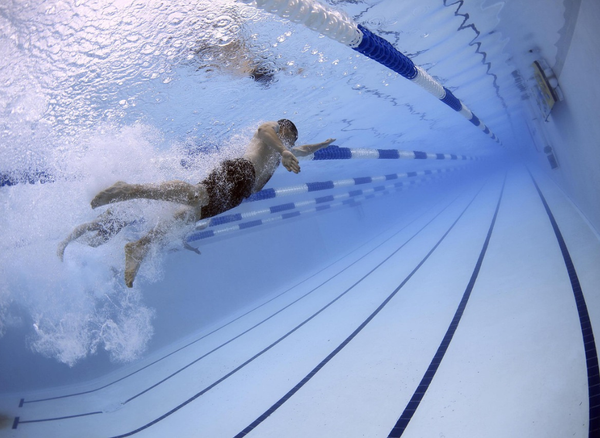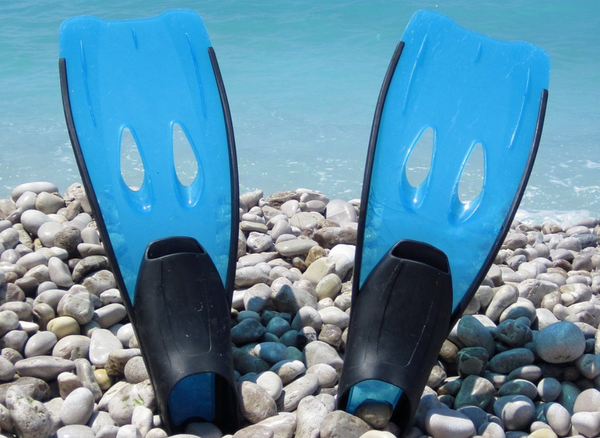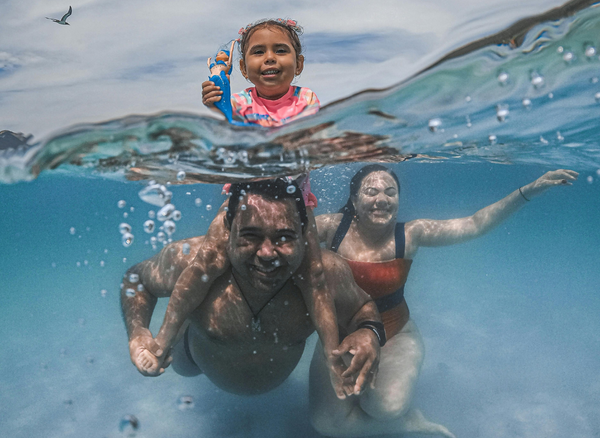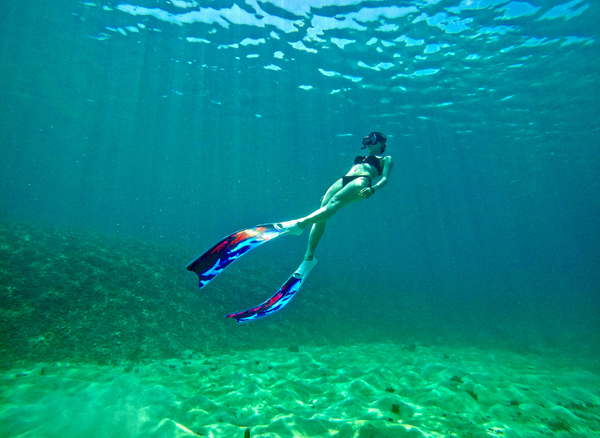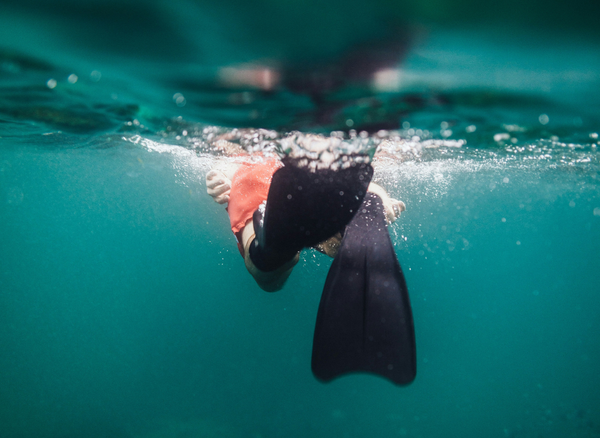The short answer is no, you don't have to be a swimming champion to start snorkeling. While knowing how to swim can certainly enhance your snorkeling experience, it's not a strict requirement. Many snorkeling excursions are designed with non-swimmers in mind, offering flotation devices and qualified personal guidance to ensure safety and enjoyment.
For those who feel uncomfortable in the water, snorkeling can still be a fun and relaxing activity. With the right snorkeling gear, such as a snorkel mask and fins, fins socks, and the use of a life vest, non-swimmers can float comfortably on the surface, enjoying the marine life below without the need to tread water or dive deep.
Swimming Skills in Snorkeling
Swimming skills can certainly add an extra layer of confidence and enjoyment to your snorkeling trips. Experienced swimmers often find it easier to navigate the water, adjust their position, and explore different kinds of marine environments. However, for those who are not confident swimmers, snorkeling in shallow waters can still offer a fantastic glimpse into the underwater world.
Non-swimmers can start snorkeling by practicing in a swimming pool. This controlled environment allows them to gain confidence and get accustomed to the snorkeling gear without the disruptive effect of waves or currents. With time, even the most hesitant snorkelers can become comfortable enough to venture into the ocean.
Snorkeling Gear 🤿
Your snorkeling gear is your ticket to a successful snorkeling adventure. A snorkel mask allows you to see clearly underwater, while a snorkel tube lets you breathe easily without lifting your head. Fins help you move efficiently through the water, reducing the effort needed to swim.
For non-swimmers, personal flotation devices such as life vests or floatation belts are essential. These devices provide buoyancy, allowing you to relax and enjoy the view without worrying about staying afloat.
Life vests, floatation belts, and other flotation devices are readily available and can be worn during snorkeling excursions. By providing an extra layer of security, these devices make snorkeling accessible to everyone, regardless of their swimming skills.
Qualified Personal Guidance
When embarking on a snorkeling adventure, especially for non-swimmers, having qualified personal guidance is crucial. A knowledgeable guide can provide instructions on how to use the snorkeling gear, ensure that everyone remains aware of their surroundings, and offer tips on how to maximize the snorkeling experience.
Guides also play a vital role in ensuring safety during a snorkeling trip. They can identify great spots for snorkeling, where the water is calm and the marine life is abundant, and they can assist in case of any issues. With a guide by your side, you can focus on the fun and excitement of exploring the underwater world.
Exploring the Underwater World
The underwater world is a vibrant and mesmerizing place, teeming with colorful fish, coral reefs, and other marine life. Snorkeling allows you to witness this beauty up close, without the need for complex diving equipment or extensive training.
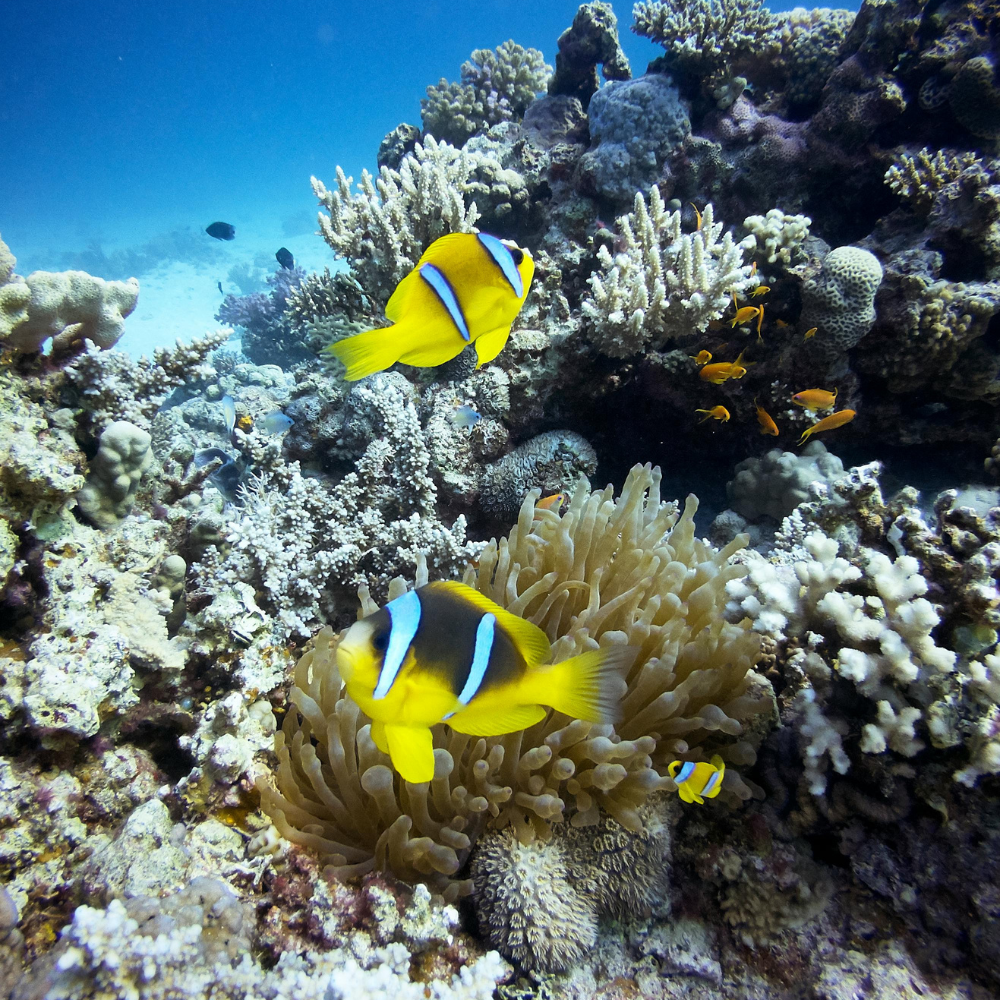
For non-swimmers, snorkeling in shallow waters near the shore can provide a safe and enjoyable experience. These areas often have calm waters, making it easier to float and observe the marine life below. With a snorkel mask and snorkel tube, you can spend time snorkeling and marveling at the wonders of the sea.
Choosing the Right Snorkeling Spots
Selecting the right snorkeling spots is crucial for a successful snorkeling experience, especially for non-swimmers. Calm waters with minimal waves and currents are ideal, as they provide a safe and comfortable environment for snorkeling.
Great spots for non-swimmers include shallow reefs near the shore, where the water is calm and the marine life is abundant. These areas offer a fantastic opportunity to explore the underwater world without the need for advanced swimming skills or diving equipment.
Snorkeling Excursions
Many companies hosting snorkeling trips offer excursions specifically designed for non-swimmers. These trips often take place in calm, shallow waters, where the risk of strong currents is minimal. Participants are provided with flotation devices and are accompanied by experienced guides who ensure safety and enjoyment.
On a typical snorkeling excursion, non-swimmers can expect to spend time snorkeling near the surface, observing the marine life below. With the right guidance and equipment, even those who are not confident swimmers can have a memorable and enjoyable snorkeling experience.
Building Confidence
For those who are hesitant about snorkeling, building confidence through practice can make a significant difference. Starting in a swimming pool allows you to get comfortable with the snorkeling gear and practice basic techniques, such as the dog paddle or floating on your back.
As you gain confidence, you can gradually move to more challenging environments, such as the beach or a boat trip. With each step, you'll become more comfortable in the water, making your snorkeling adventures more enjoyable and rewarding.
The Fun and Relaxation of Snorkeling
Snorkeling is not just about exploring the underwater world; it's also about having fun and relaxing in the water. With the right gear and guidance, even non-swimmers can enjoy the thrill of snorkeling, experiencing the beauty of the sea in a safe and enjoyable way.
Whether you're floating on the surface, observing colorful fish, or simply enjoying the sensation of being in the water, snorkeling offers a unique and rewarding experience. With a little practice and the right equipment, anyone can enjoy the fun and relaxation that snorkeling has to offer.
Swimming in Snorkeling FAQs
Can non-swimmers snorkel safely?
Yes, non-swimmers can snorkel safely by using flotation devices such as life vests and staying in calm, shallow waters.
Can I go snorkeling if I can't swim?
Yes, non-swimmers can go snorkeling by using flotation devices and staying in calm, shallow waters. With the guidance of qualified instructors and the right equipment, anyone can enjoy the beauty of the underwater world through snorkeling.
What equipment is essential for non-swimmers when snorkeling?
Non-swimmers should use a snorkel mask, snorkel tube, fins, and most importantly personal flotation devices like life vests or floatation belts. These tools help ensure safety and enhance the snorkeling experience.
How can non-swimmers build confidence for snorkeling?
Non-swimmers can build confidence by practicing in a swimming pool, getting comfortable with the snorkeling gear, and gradually moving to more challenging environments.
Can you snorkel in Hawaii without knowing how do you swim?
Yes, you can snorkel in Hawaii without knowing how to swim by joining guided snorkeling tours and using flotation devices. These tours often take place in calm and shallow waters, providing a safe and enjoyable experience for non-swimmers.
Is snorkeling hard for beginners?
Snorkeling can seem hard for beginners, but with the right guidance and equipment, it can be a fun and enjoyable experience. It's essential to start in calm and shallow waters, use a floatation device, and practice basic swimming techniques before venturing into more challenging environments.
Who should not snorkel?
Individuals who are not comfortable in the water, have respiratory problems, or are pregnant should consult with a doctor before snorkeling. Additionally, anyone with recent injuries or surgeries should avoid snorkeling until fully healed to prevent any complications.
How far underwater do you go when snorkeling?
The depth at which you snorkel depends on your comfort level and the conditions of the water. For non-swimmers, it's recommended to stay within arm's reach of the surface and not attempt to dive or submerge completely underwater.
How long does it take to learn snorkeling?
The time it takes to learn snorkeling varies from person to person. For some, it may come naturally and quickly, while others may need more time to get comfortable with the gear and techniques.
Summary
Snorkeling is a surface sport that offers a window into the underwater world, accessible to both swimmers and non-swimmers alike. With the right snorkeling gear, flotation devices, and qualified personal guidance, even those who feel uncomfortable in the water can enjoy a safe and memorable snorkeling adventure. By choosing the right spots and building confidence through practice, anyone can experience the joy and relaxation of snorkeling, exploring the vibrant marine life that lies just beneath the surface.




